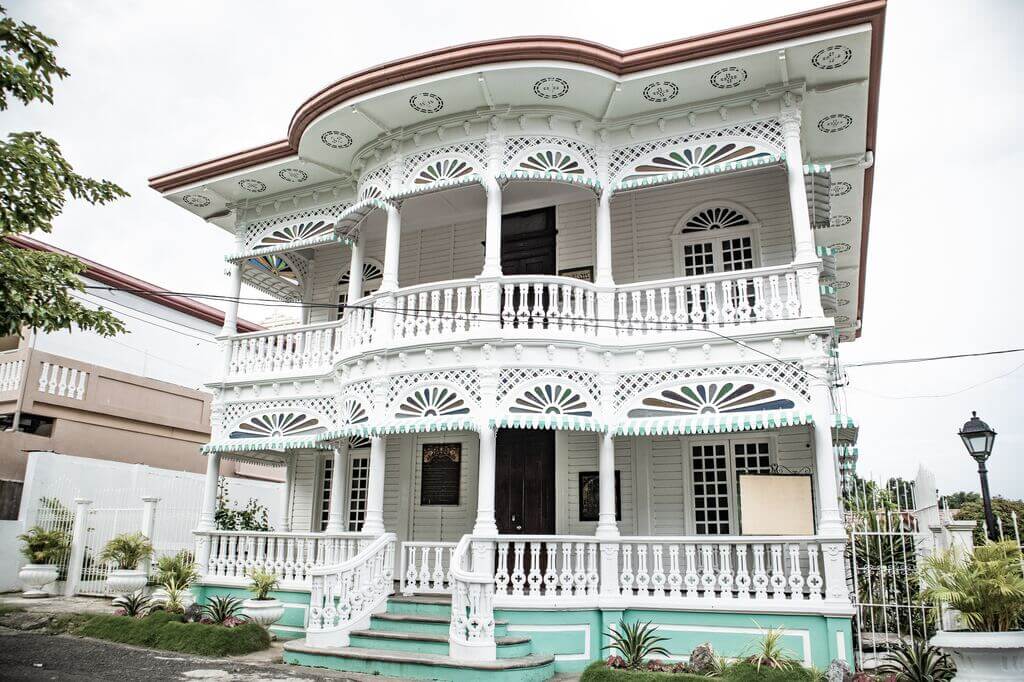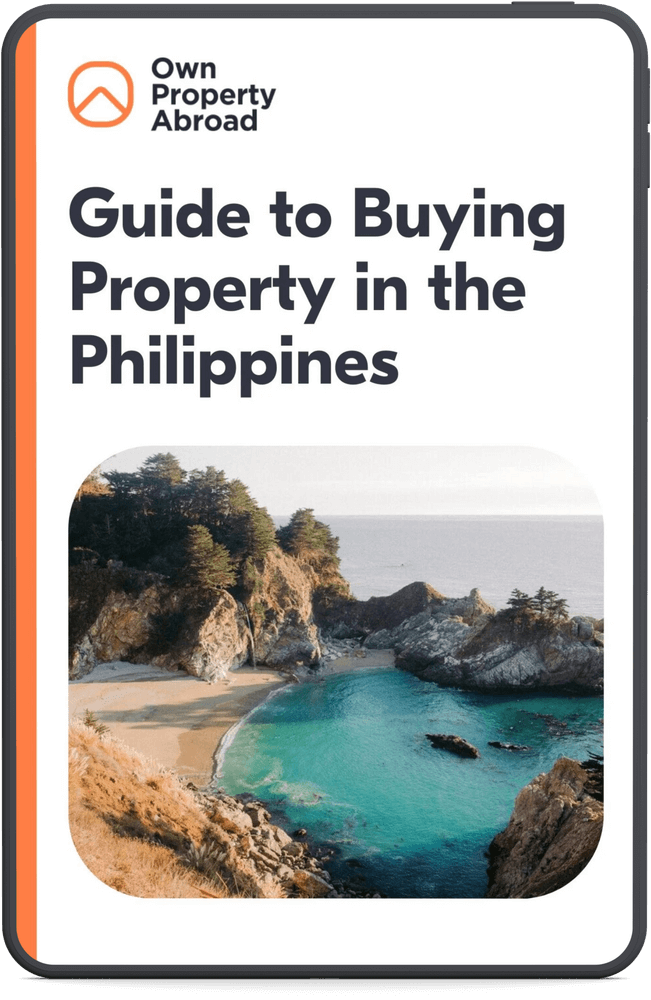Villas
A single-story villa has an external patio and a front garden or terrace. These property types in the Philippines may be attached to another nearby villa or have at least one shared wall. Today’s villas typically feature a living room, several bedrooms, a private garden, and a pool. Furthermore, because these structures are built entirely independent of their surroundings, these property types in the Philippines are typically surrounded by private walkways and garden designs.
Foreign individuals and corporations can typically own up to 40% of a condominium project, which includes villas and apartments. However, if the villa is located on land classified as agricultural, foreign individuals and corporations are restricted from owning it.
Condominiums
A condominium, whether a studio or a unit with one, two, or three bedrooms, is a space within a larger structure or real estate development divided into individual units. Multiple individuals can own each unit and have its condominium title. As an owner, you have a shared ownership interest in the building’s amenities and common areas, and you also have access to them. In some cases, condominiums may include commercial and retail spaces, providing convenience for residents. These property types in real estate in the Philippines are common in urban cities and core business districts.
According to the Condominium Act of 1966, non-Filipinos can own up to 40% of a condominium project. Additionally, foreign ownership of a condominium unit must not exceed 40% of the total and must have the approval of the Philippine Housing and Land Use Regulatory Board.

Apartments
An apartment is an individual unit within a building containing multiple units. These property types in the Philippines can range from large-scale public housing to privately owned rooms tenants rent from a landlord; in contrast to condo units, which offer ownership or rental options, an apartment building is typically owned by a single person who rents out the units to tenants. Just like condominiums, apartment units share walls within the building.
Foreigners can lease an apartment in the Philippines, but only Filipino citizens can own one, as land ownership laws in the Philippines are restricted to foreign nationals.
Townhouses
Townhouses are becoming popular for property types in the Philippines for young Filipino couples starting a family. This demand has led land developers to turn to townhouses to solve the growing need for housing. One advantage of townhouses is their sense of privacy, as each unit has its outside door and no shared passageways between residents. Additionally, townhouses often have a guarded entrance, ensuring safety and privacy for residents. Another benefit is that townhouses can be sold quickly because developers typically build fewer units than condominiums and subdivisions.
Townhouses and condos are different, but like condominiums, foreign individuals and corporations typically own up to 40% of a townhouse project. However, if the townhouse is located on land classified as agricultural, foreign individuals and corporations are restricted from owning it.
Plots of land
Lots and land are valuable assets in the real estate industry, as they offer various opportunities for investment and development for different property types in the Philippines. These types of lots in the Philippines come in different sizes and shapes, each with defined boundaries documented on land titles. Land can be used for residential development, commercial projects, livestock-raising, mineral production, vegetable farming, vineyards, orchards, and recreational purposes. Land investment is considered a wise choice as its value increases over time.
It is essential, however, to carefully choose reputable owners and developers when buying land, as fraudulent activities and schemes are unfortunately prevalent in the real estate industry. While Philippine law generally prohibits foreigners from purchasing land, alternatives are still available for those who wish to build their homes.
Foreigners can acquire separate property types in the Philippines that do not include land ownership or explore long-term lease agreements, which can extend up to 50 years. Despite the restrictions on land ownership, foreigners can still plan and build their dream homes in the Philippines by considering these options and carefully navigating the regulations.
Commercial real estate
Commercial real estate presents a great opportunity for investors to generate income and profits in the Philippines. Commercial buildings, one of the forgotten property types in the Philippines, can generate substantial revenue by renting out spaces to multiple businesses and leasing the ground floor to banks, fast food outlets, or convenience stores. It’s strategically located in commercial lots with access to national highways.
Reliable utilities are also in high demand, especially for multinational corporations seeking lease opportunities for gasoline stations, food outlets, warehouses, or commercial centers. Investing in commercial real estate in the Philippines can provide significant financial opportunities for savvy investors.
Up to 100% foreign ownership is allowed for some commercial projects, but most foreign ownership is limited to a maximum of 40%. Investment regulations in commercial properties vary depending on the project’s type, location, and size. It is recommended to seek professional advice before investing in commercial real estate.
Need help buying property in the Philippines?
Do you need help with buying property in the Philippines? Own Property Abroad makes your property purchase in the Philippines seamless and stress-free. Whether you need help with documentation, negotiations, or finding the perfect property, our expert team is here to support you every step of the way. Leave your name and email below or email us directly at [email protected] for personalized assistance. Get professional help today and ensure a smooth property buying experience!
Frequently Asked Questions (FAQs)
What are the different types of houses in the Philippines?
The different types of housing in the Philippines include single-family homes, villas, condominiums, apartments, and townhouses.
What are the different types of lots in the Philippines?
The different types of lots in the Philippines include residential, commercial, industrial, and agricultural.
Which Philippine property types can foreigners buy?
Foreign nationals can buy condominium units and other types of property in the Philippines if foreign ownership in the building or development does not exceed 40%. Foreigners can acquire residential land through long-term leases or by forming a corporation with Filipino majority ownership to own the land.






